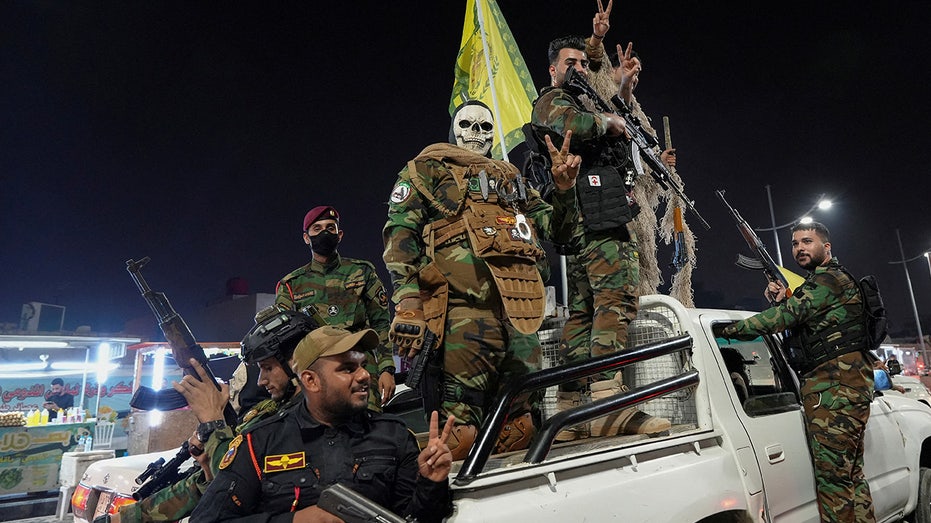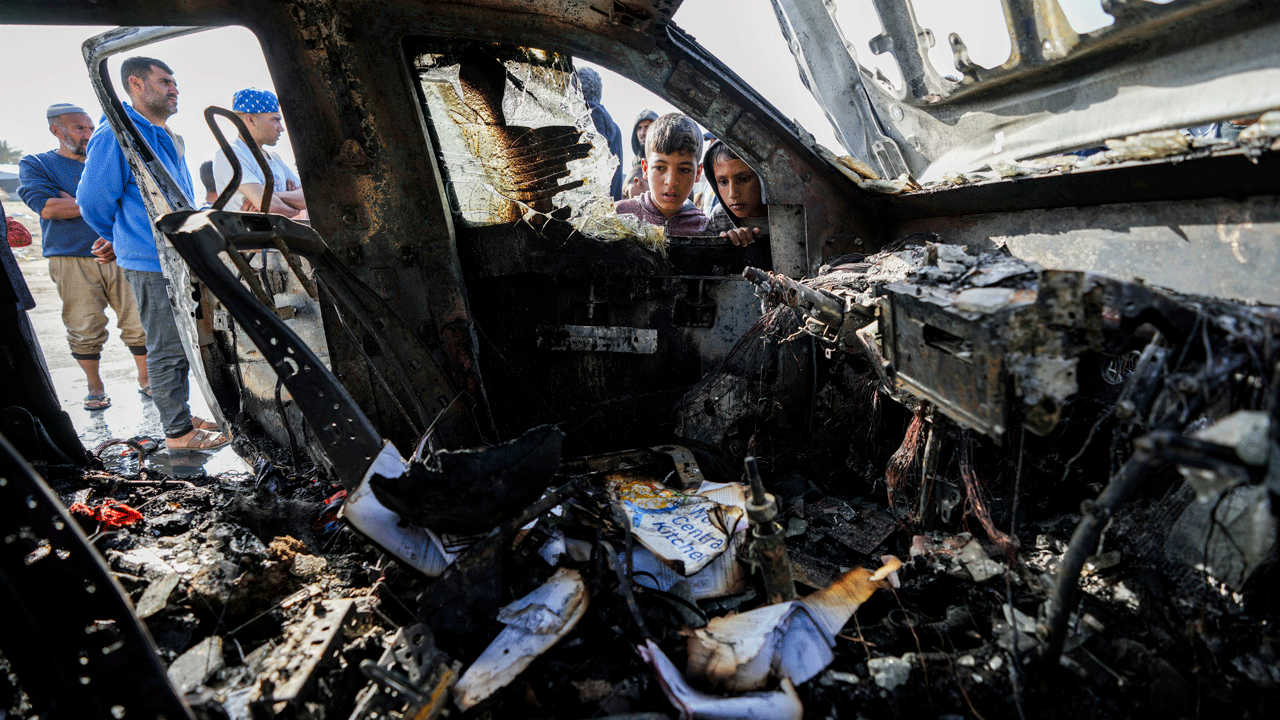Attacks against the U.S. by Iran-linked actors have skyrocketed in the last year with a 630% increase in malign acts since the Hamas terror attack in southern Israel on Oct. 7. 2023, according to a report by the Jewish Institute for National Security of America (JINSA) obtained exclusively by Fox News Digital.
The number of malign attacks against the U.S. – incidents that include projectile strikes, maritime aggression, major cyber intrusions and hacking, kidnappings or wrongful detentions, and terrorist attacks – began to increase after the U.S. 2018 withdrawal from the Iran nuclear deal under the first Trump administration, then throughout President Biden’s term.
After the Oct. 7, 2023, attack on Israel and the subsequent wars against Hamas in Gaza and Hezbollah in Lebanon, Iran-backed groups have not only levied increasing fire at Washington’s top ally in the Middle East, but also its troops in Iraq and Syria as well as U.S. naval vessels targeted by Houthi terrorists in Yemen.
NETANYAHU SIGNALS TEHRAN’S NUCLEAR PROGRAM COULD BE NEXT TARGET AS IRAN PLANS FUTURE ATTACK
“Iran-backed groups in Iraq and Syria have launched at least 204 attacks involving over 330 rockets, missiles, and drones against U.S. personnel since October 17, 2023,” Ari Cicurel, JINSA assistant director of foreign policy, said in his report released Tuesday.
As Israel continued to ramp up its offensive against Hezbollah in Lebanon and prepare for its promised retaliatory attack against Tehran in late October, Iran-backed groups in turn increased their attacks against U.S. troops in neighboring nations.
“As it has done in the past, Iran could also further escalate its proxies’ attacks against U.S. forces in Iraq and Syria to try to convince Washington to exert pressure on Israel so that it stops degrading these terrorist groups,” Cicurel told Fox News Digital.
Militia groups in Syria more than doubled the number of attacks levied at U.S. personnel in 15 separate incidents compared to the seven attacks Iran-backed groups carried out in September. Though the figure is still just half the number of attacks levied in January when some 34 strikes targeted U.S. personnel in Syria along with 19 in Iraq.
Cicurel clarified for Fox News Digital that these strikes are by organizations like the Islamic Resistance in Iraq, which is an “umbrella mechanism for Iran’s proxies” and includes terrorist groups likes Kataib Hezbollah, Kataib Sayyid al-Shuhada, Asaib Ahl al-Haq, Ansar Allah al-Awfiya and Harakat Hezbollah al-Nujaba, to claim attacks against Israel and U.S. forces.”
The attacks outlined in JINSA’s latest report do not include strikes levied at the U.S. in Iraq and Syria from ISIS, nor does it include the most recent attacks carried out against the U.S. this week.
Pentagon Press Secretary Maj. Gen. Pat Ryder confirmed on Tuesday that Iran-backed Houthi’s in Yemen attacked three U.S. destroyers in the Bab al-Mandab strait on Monday. In addition, two other attacks were carried out in northeast Syria by Iran-proxy groups on Sunday.
Neither the ships nor the base sustained any damage and no U.S. servicemembers were injured in the attacks.
The U.S. continues to target weapons storage facilities as well as Iran-backed militant target locations, confirmed the Pentagon press secretary.
“These strikes will degrade the Iranian-backed groups’ ability to plan and launch future attacks on U.S. and coalition forces who are in the region to conduct defeat ISIS operation,” confirmed Ryder.
US FORCES STRIKE 9 IRAN-LINKED MILITIA TARGETS IN SYRIA: ‘OUR MESSAGE IS CLEAR’
In response to Fox News Digital’s questions regarding the rising threat posed by Iran-backed groups in the Middle East, a defense official said that “due to operational security concerns, we do not comment on the number of threats and/or strikes.”
But according to the JINSA report, prior to the October 2023 attacks by Hamas, Iran-sanctioned militant groups opted to target U.S. troops over Israeli positions because “Iranian-linked groups determined that the U.S. responses would be less forceful than Israel’s.”
That strategy halted after the Hamas attack on Israel, and in October this year alone Iran-backed groups launched more than 110 unmanned aerial vehicles (UAV), missiles and rockets at Israel from Iraq.
“Leveraging its Iraqi proxies to fire at Israel was likely a means for Iran to increase fire against the Jewish state without triggering the retaliation on Iranian territory that its direct attacks have incurred,” Cicurel said.
Security experts have told Fox News Digital they believe the international community can expect to see increased fighting in Iraq and Syria between Israel and Iran-backed militias as Tehran looks to prevent strikes on its own homeland from becoming normalized.
“With Israel having dismantled Hamas and neutralized much of Hezbollah’s capabilities, Iran will likely increasingly target Israel by using its proxies in Iraq and Syria, which it has similarly armed with Iran-made rockets, missiles and drones,” Cicuerl said.
Just as the U.S. has seen an increase in Iran-backed attacks levied at it since last year, so, too, has Israel.
Not only has Iran directly fired some 320 ballistic missiles, 170 cruise missiles and 30 UAVs during its April and October attacks on the Jewish state, its top proxy fighting force, Hezbollah, has fired a reported 16,170 projectiles at Israel since October 2023, nearly 40% of which were fired last month when 6,340 rockets, missiles and UAVs targeted the Levant nation.
Israel also saw at least 111 UAVs, missiles and rockets thrown at it from Iran-backed groups in Iraq last month, which is more than 2.5 times the number of attacks from Iraq than in September and likely a strong motivator for the strike that Israel carried out in Iraq and Syria during its retaliatory strike against Tehran late last month.




